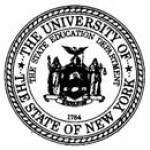- Industrie: Education
- Number of terms: 21544
- Number of blossaries: 0
- Company Profile:
The Regents are responsible for the general supervision of all educational activities within the State, presiding over The University and the New York State Education Department.
The University of the State of New York is the nation's most comprehensive and unified educational system. It consists ...
A war in the country of Vietnam, first between the French and Vietnamese, as France was attempting to hold onto its colony. The second war was between the United States and the communist forces of North Vietnam, as the U.S. was attempting to keep South Vietnam free from communism. The North Vietnamese eventually won, forcing the United States to withdraw.
Industry:History
A book of political advice written by Niccolo Machiavelli during the Renaissance in which he describes the methods that a prince should use to acquire and maintain political power. This book was used to defend policies of despotism and tyranny. Machiavelli wrote that a ruler should take any action to remain in power, or that the ends justifies the means.
Industry:History
(1842) An unequal treaty between Great Britain and China resulting from the Opium War. The treaty stated that China was to reimburse Britain for costs incurred fighting the war. The Chinese were forced to open several ports to British trade, provide Britain with complete control of Hong Kong, and grant extraterritoriality to British citizens living in China.
Industry:History
(1941- ) Former Yugoslavian President. He fought to keep non-Serbs from breaking away from Yugoslavia. During the 1990s, he used his army to terrorize ethnic Albanians in Kosovo, who were asking for self rule. The North Atlantic Treaty Organization (NATO) finally put a stop to this violence, and Milosevic has since been arrested and awaits trial for war crimes.
Industry:History
A famine in 1845 when the main crop of Ireland, potatoes, was destroyed by disease. Irish farmers grew other food items, such as wheat and oats, but Great Britain required them to export those items to them, leaving nothing for the Irish to live on. As a result, over 1 million Irish died of starvation or disease, while millions of others migrated to the United States.
Industry:History
The policy of building a nation's wealth by exporting more goods than it imports. Colonies are instrumental in this policy as they supply their parent nations with raw materials that are used to produce finished goods, and then exported back to the colonies. Colonies not only served as a source for the raw materials, but also as an exclusive market for the parent country.
Industry:History
April 3rd of 1919. British soldiers killed close to 400 unarmed Indian men, women, and children, and wounded 1,100 more. People had gathered in the center of town to protest British occupation of their country, and to demand equality. This was a turning point in British domination of India. Independence movements became very popular and eventually forced India's independence.
Industry:History
In ancient China, they were pieces of bone or turtle shell used by Shang priests to tell the future. They would write a question addressed to either one of the gods, or an ancestor on the bone, then heat it until it cracked. They believed that by studying the pattern of cracks, one could learn the answer to the question. Oracle bones are the oldest example of Chinese writing.
Industry:History
A European policy of conquest that occurs in the 15th through 18th centuries in Africa, India, the Americas, and parts of Asia The motives were the same for most areas, the establishment of lucrative trade routes. Various European countries dominated these trades routes and one time or another, and a some countries, such as Great Britain and Spain, came to dominate entire countries.
Industry:History
French philosopher Jean Jaques Rousseau's book in which he wrote that people were basically good, and that society, and its unequal distribution of wealth, were the cause of most problems. Rousseau believed that government should be run according to the will of the majority, which he called the General Will. He claimed that the General Will would always act in the best interest of the people.
Industry:History
